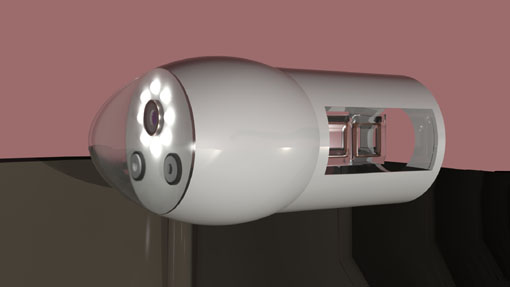HAUPTMENÜ
AWARDS
Forschergeist gefragt: 14. Novartis Oppenheim-Förderpreis für MS-Forschung ausgelobt
FernstudiumCheck Award: Deutschlands beliebteste Fernhochschule bleibt die SRH Fernhochschule
Vergabe der Wissenschaftspreise der Deutschen Hochdruckliga und der Deutschen Hypertoniestiftung
Den Patientenwillen auf der Intensivstation im Blick: Dr. Anna-Henrikje Seidlein…
Wissenschaft mit Auszeichnung: Herausragende Nachwuchsforscher auf der Jahrestagung der Deutschen…
VERANSTALTUNGEN
Wichtigster Kongress für Lungen- und Beatmungsmedizin ist erfolgreich gestartet
Virtuelle DGHO-Frühjahrstagungsreihe am 22.03. / 29.03. / 26.04.2023: Herausforderungen in…
Pneumologie-Kongress vom 29. März bis 1. April im Congress Center…
Die Hot Topics der Hirnforschung auf dem DGKN-Kongress für Klinische…
Deutscher Schmerz- und Palliativtag 2023 startet am 14.3.
DOC-CHECK LOGIN
Swallow a pill and let your doc tour your insides
Researchers at Brigham and Women’s Hospital successfully test tiny precision-controlled device that patients swallow like a pill
Boston, MA, USA (January 10,2012) – Researchers at Brigham and Women’s Hospital (BWH) have successfully tested a controllable endoscopic capsule, inspired by science fiction, that has the ability to "swim" through the body and could provide clinicians with unprecedented control when photographing the inside of the human body.
The capsule is designed to be swallowed like a pill and can be equipped with a camera. Once inside the patient’s digestive track, a doctor can "steer" the capsule through the body using an MRI machine, photograph specific areas of interest, and view those pictures wirelessly.
With current endoscopic capsule technology, the capsule tumbles randomly through the digestive track and clinicians have no control over what areas of the body are being photographed. The ability to steer a capsule, aim a camera, and take pictures of specific areas of concern is a major leap forward with the potential for broad medical implications.
"Our goal is to develop this capsule so that it could be used to deliver images in real time, and allow clinicians to make a diagnosis during a single procedure with little discomfort or risk to the patient," said Noby Hata, a researcher in the Department of Radiology at BWH and leader of the development team for the endoscopic capsule. "Ideally, in the future we would be able to utilize this technology deliver drugs or other treatments, such as laser surgery, directly to tumors or injuries within the digestive track."
BWH researchers Hata and his colleague, Peter Jakab, have successfully tested a prototype of their capsule in an MRI machine and proved that the capsule can be manipulated to "swim" through a tank of water. The next step in their research is to successfully test the capsule inside a human body. There is no reason to believe the capsule would move differently in a human than it does in a tank of water.
—
Brigham and Women’s Hospital (BWH) is a 793-bed nonprofit teaching affiliate of Harvard Medical School and a founding member of Partners HealthCare, an integrated health care delivery network. BWH is the home of the Carl J. and Ruth Shapiro Cardiovascular Center, the most advanced center of its kind. BWH is committed to excellence in patient care with expertise in virtually every specialty of medicine and surgery. The BWH medical preeminence dates back to 1832, and today that rich history in clinical care is coupled with its national leadership in quality improvement and patient safety initiatives and its dedication to educating and training the next generation of health care professionals. Through investigation and discovery conducted at its Biomedical Research Institute (BRI), www.brighamandwomens.org/research, BWH is an international leader in basic, clinical and translational research on human diseases, involving more than 900 physician-investigators and renowned biomedical scientists and faculty supported by more than $537 M in funding. BWH is also home to major landmark epidemiologic population studies, including the Nurses‘ and Physicians‘ Health Studies and the Women’s Health Initiative. For more information about BWH, please visit www.brighamandwomens.org
Pictures

The capsule. Courtesy: Brigham and Women’s Hospital

The capsule travelling. Courtesy: Brigham and Women’s Hospital
Videolinks
Brigham and Women’s Hospital, 10.01.2012 (tB).



